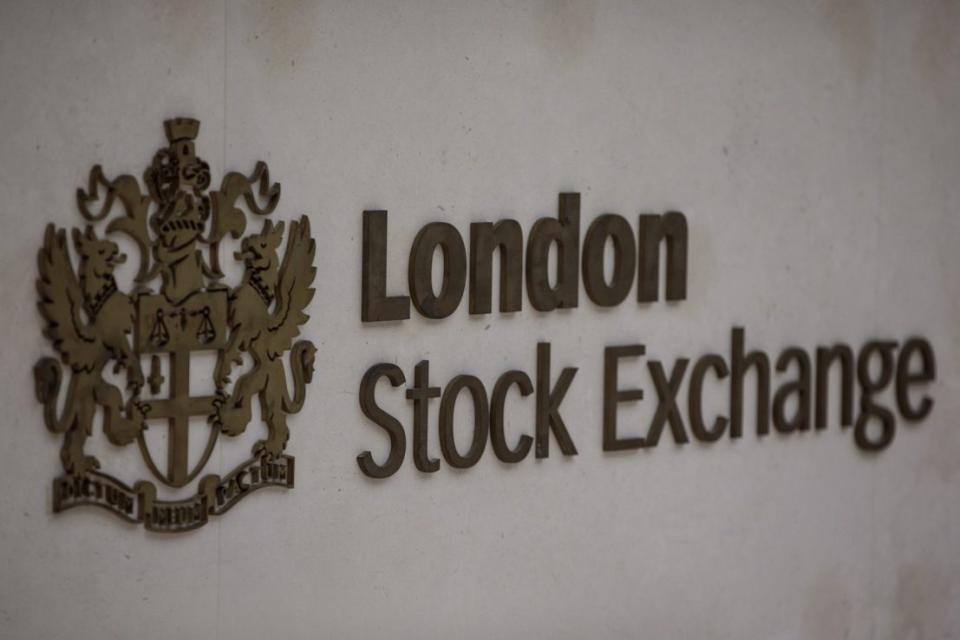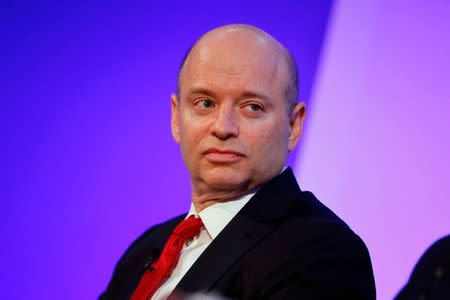Could 2024 be the year the doom and gloom ends on the London Stock Exchange?

After a bruising year for the City and the London Stock Exchange, could 2024 offer a glimmer of hope?
Sitting at the head of a table at the London Stock Exchange Group’s HQ in November, David Schwimmer was smiling and bullish.
“The notion that you get a better valuation in the US? That’s a myth,” the LSEG chief told a room full of reporters.
Schwimmer’s view is not a unique one. A host of banks and analysts have landed on a similar conclusion this year. But the LSEG chief’s at-times casual handling of the listings drought has ruffled some feathers through 2023. The New York-born boss bore a barrage of criticism for describing negative news of the City as “click-bait” and claiming the listings drought “is what it is”.
The comments also come at a time when the parent group of the London Stock Exchange has leant more strongly into its data business after its blockbuster $27bn acquisition of Refinitiv in 2019, with the historic bourse now making up under four per cent of its revenues.
But in the City, the task to revive the public markets is a large and existential one. And top figures say combatting doom and gloom should be top of the agenda for everyone in the capital markets business.

Gripping the narrative
“Next year is about driving a positive narrative and awareness amongst investors and issuers about what has changed, as well as some myth-busting about the perceived merits of other markets compared to our own, most of which are not true,” Mark Austin, a partner at Latham & Watkins and mastermind of a review of the UK secondary markets, tells City A.M.
Austin says the “good news” is next year London will have ironed out many of the regulatory friction points and “will have made ourselves match fit again” – free to promote the City on the world stage.
The London Stock Exchange boss Julia Hoggett has been among the chief critics of those talking down London this year, telling City A.M. in September that “people have narratives in their heads and are looking for things to fulfil it rather than anything else.”
Those efforts have come under some criticism, with some in the City claiming Schwimmer’s comments are at loggerheads with the actual exchange’s efforts.
“They need to sort out their messaging,” one senior corporate lawyer tells City A.M. “On the one hand, the LSE promote London as a great place to raise capital. On the other, LSEG says LSE doesn’t really matter to them and is now a very small part of their business.”
Jack Shepherd, a corporate Partner with law firm CMS, adds that the LSE needs to “get a better grip of the narrative”.
The bourse’s chiefs will likely be looking to underscore the failure of many floats across the pond next year and hammer home London’s still-leading status for capital raising in Europe.
The argument holds some weight. Only 23 UK Companies have IPO’d in the US in the last 10 years. Of those firms, six have already de-listed, 14 are trading down and only three are trading up. On average they’re trading down around 43 per cent.
Data from the Association for Financial Markets in Europe this week also showed that the London Stock Exchange had raised €16.8bn (£14.46bn) in the first nine months of the year, double that of Euronext Amsterdam in second place.
However, the LSE drops to fourth place for floats, with just €980m raised in the year to September, behind Bucharest, the Frankfurt Exchange and the Borsa Italiana.
‘Competitive and active’
Central to its offensive efforts next year will be the creation of an intermittent trading venue, which will allow firms to stay private but auction their shares at set intervals.
Marcus Stottard, the LSE’s head of UK primary markets & AIM, tells City A.M. there is a “lot of excitement” around the ‘ITV’, which could “supercharge the scaling of our venture financing ecosystem”.
He insists that London’s markets have also remained “competitive” and “active” despite the downturn.
The London Stock Exchange is also waiting in hope for a slew of reform from government and regulators. The FCA has pledged it will publish final listing rule proposals before the end of the year, and the new City minister has said that taking forward some of the three-year old recommendations of the Hill review will be a priority in the next year.

But for all the proposals, some say the sheer lack of demand and liquidity problem will still sit as the primary blocker to any great re-opening of the market. Charles Hall, chief of research at investment bank Peel Hunt, says this is a problem of investment rather than regulation or narrative.
“In order for London to flourish it requires an injection of demand, which would provide firepower for asset managers to invest in new companies as well as improve valuations,” he tells City A.M.
A combination of those would then create a “virtuous circle”, he says, in which more cash and companies would be attracted to the UK.
Lawyers and advisors say privately they’re hoping for a rebound by the end of next year. In the meantime they’re expecting public to private deals to keep them busy.
Whether the under-fire London Stock Exchange and its parent group can get to grips with the doom and gloom in the meantime however, is yet to be seen.

 Yahoo Finance
Yahoo Finance 